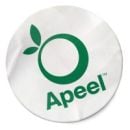
Fast Company’s list of the 50 Most Innovative Companies of 2019 hit the stands late last week. The list, which includes companies from around the globe, includes companies both old (Walt Disney Company is ranked #4 and NBA #3) and new.
Amazingly (or not, if you read our coverage regularly), a whopping 11 of the 50 companies on this year’s list are from Southern California.
Meet the companies making waves right here in our backyard.

Industry: Media
HQ: Anaheim
Fast Co. ranking: 4 of 50
What Fast Co. said: “Plenty of venerable media empires aspire to be players in the streaming wars. None is better positioned than Disney, which retooled its organization to deliver its own video services rather than license content to Netflix,” wrote Harry McCracken of the company.
Our take: While so many networks appear to be withering on the vine, the Walt Disney Company is staying ahead. Beyond its highly anticipated streaming service Disney+, the company also gained new production power with the acquisition of 21st Century Fox under the Walt Disney Company umbrella. It’s also making major VR investments, hinting that the new media form will become a mainstay of the Disney entertainment (and perhaps theme park) experience.

Industry: Foodtech
HQ: Culver City
Fast Co. ranking: 6 of 50
What Fast Co. said: “With 91 restaurants in eight states and a network of 150 farmers across the country, Sweetgreen has created a fast-casual, farm-to-table empire that’s poised to expand by (at least) another 15 outposts this year,” wrote Amy Farley of Fast Co.
Our take: With more than $315.5 million in funding to date, Sweetgreen is far more than a salad company. It’s a technology and logistics company that also makes amazing salads. The impact-driven company is integrating blockchain, IoT and metadata technologies to create a smarter supply chain for their ingredients, shorten lines and make their offerings available online at the click of a button.

Industry: Agriculture
HQ: Santa Barbara
Fast Co. ranking: 7 of 50
What Fast Co. said: “Following six years of R&D, last May, Apeel Sciences debuted its plant-based coating on avocados at more than 250 grocery chains, including Kroger and Costco. The technology, which slows water loss and oxidation, has already led to savings: Midwest grocer Harps reduced its avocado waste by 60 percent,” wrote Yasmin Gagne.
Our take: Based in Santa Barbara, Apeel Sciences is taking a new angle on solving the problem of food waste. The company has developed an organic solution that doubles the shelf life of fresh produce like apples and grapes. Their sustainable mission has attracted backers from every corner of the business and philanthropic worlds, including Andreessen Horowitz, Viking Global Investors, Upfront Ventures and The Bill and Melinda Gate Foundation.

Industry: Image recognition
HQ: San Diego
Fast Co. ranking: 16 of 50
What Fast Co. said: “Today, the Truepic app is used by doctors and hospital workers with the Syrian American Medical Society to document attacks on civilians, as well as by citizen journalists, including 16-year-old Muhammad Najem, whose September video plea for President Trump to ‘protect children like me’ from Assad’s chemical attacks has been seen more than a million times,” wrote J.J. McCorvey.
Our take: Truepic uses controlled capture technology to verify a photo or video’s origins. The technology helps stop the flow of disinformation by verifying photos taken by journalists or released by governments — as well as those which are shaken off as fake by the powers that be. The technology is known for being used by Reddit moderators to ensure that a user hosting an AMA (short for “Ask Me Anything”) is actually the one answering the questions.

Industry: Music
HQ: Burbank
Fast Co. ranking: 21 of 50
What Fast Co. said: “There’s a good chance that your favorite bop from 2018 came from a Universal Music Group artist: Drake’s Scorpion was the top album of the year on Apple Music, Ariana Grande was Spotify’s most-streamed female artist, and Taylor Swift’s Reputation ranked No. 1 on Billboard’s year-end album chart,” wrote J.J. McCorvey.
Our take: Universal Music Group is one of the nation’s oldest labels — and the most innovative. The company owns and operates an array of businesses from recording studios to publishers, merchandisers and audiovisual groups across more than 60 countries. Their business is powered by a cutting-edge team of software engineers and other technical players who drive operational efficiency so musicians can focus on just that — the music.

Industry: Logistics
HQ: Irvine
Fast Co. ranking: 23 of 50
What Fast Co. said: “About 90 percent of the food Americans consume requires refrigeration at some point during transport, and Lineage provides that service for some 3,000 customers, including food giants Walmart, Tyson, and McDonald’s,” wrote Lara Sorokanich of the company.
Our take: Lineage Logistics is a global refrigerator storage company. The group works with some of the largest food providers in the world, storing goods in their cold warehouses which are worth an estimated $4 billion, collectively. The company has raised $700 million to date and operates globally.

Industry: Beverage delivery
HQ: Los Angeles
Fast Co. ranking: 25 of 50
What Fast Co. said: “Subscription wine club Winc became one of the top-50 wineries in the U.S. last year by flipping the typical business model on its head. While traditional vintners make a wine and then market it, Winc creates bottles based on more than 5 million customer ratings from its 75% millennial subscriber base,” wrote Cale Guthrie Weissman of the company.
Our take: Winc is based on the idea that not everyone is a sommelier — and that’s okay. The company’s website asks users questions to pair which wine is best for their pallet and then has them shipped on a subscription basis. All wines are created in-house based on customer data and are sold at an affordable rate — at the lower end, around $13 a bottle.

Industry: Beauty
HQ: Santa Monica
Fast Co. ranking: 33 of 50
What Fast Co. said: “Direct-to-consumer skincare and cosmetic brand Beautycounter refuses to use more than 1,500 legal but questionable chemicals in its products, but for founder and CEO Gregg Renfrew, there's another number that's even more important: 40,000,” wrote Rina Raphael.
Our take: Founded in 2013, Beautycounter is one of the most successful e-commerce brands in Southern California. Helmed by CEO and serial entrepreneur Gregg Renfrew, the company develops and sells skincare, body and hair products that are as safe as they are effective. Their products are made without harmful ingredients that might contribute to serious health problems such as cancer and reproductive issues.

Industry: E-commerce
HQ: Los Angeles
Fast Co. ranking: 37 of 50
What Fast Co. said: “Since its 2015 launch, GOAT has grown into a premium lifestyle brand with more than 150,000 sellers, 10 million customers, and 750,000 shoes for sale. Last year, dozens of its sellers each moved more than $10 million worth of kicks, which can run upwards of $10,000 a pair. GOAT typically takes a 9.5% commission,” wrote Nicole Laporte.
Our take: Ditto everything above. For background: GOAT (part of The Goat Group) is the world’s largest marketplace for buying and selling sneakers of all stripes, with everything from general releases to exclusive, highly sought-after footwear. The company has partnered with everyone from Reddit co-founder Alexis Ohanian to LeBron James.

Industry: Aerospace
HQ: Huntington Beach
Fast Co. ranking: 43 of 50
What Fast Co. said: “While Jeff Bezos and Elon Musk brag about their enormous rockets, capable of carrying heavy payloads into space, LA-based Rocket Lab has embraced a different strategy. Its 56-foot Electron rocket can carry only about 500 pounds, but it can reach space for just $5.7 million per launch (SpaceX, by contrast, spends $62 million to $90 million per trip), making putting satellites into orbit a possibility for companies both small and large,” wrote Ruth Reader.
Our take: Smaller, cheaper rockets — that’s what Rocket Lab promises in a nutshell. The company was launched back in 2006 by Peter Beck, a New Zealand-born engineer, and has raised a sizable warchest to build and launch their spacecraft, with $215 million in the bank. Just last month, Rocket Lab launched a rocket into space for DARPA, the U.S. defense agency.

Industry: Fintech
HQ: Irvine
Fast Co. ranking: 48 of 50
What Fast Co. said: “Last year, Acorns began offering its 4.2 million users the ability to open an IRA, along with a checking account and debit card that link to the company’s investment products. It also redesigned its app to help users better visualize the impact of all those saved dollars and cents,” wrote Ruth Reader.
Our take: Millennials do a lot of things differently, right down to how they invest. Acorns seemed to know this before anyone else — and they built an app for it. The company’s mobile-first micro-investing app makes it possible to invest small amounts of money (i.e. pocket change) and reap rewards over time. The company boasts not one but two Nobel Prize-winning economists on its board and counts PayPal, Bain and BlackRock as investors.









